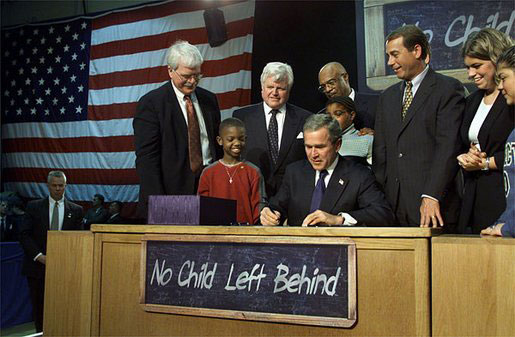2002: International Learning in an Era of Globalization

As debates about globalization persisted, 2002 was marked with various international developments which brought countries and people closer together. For example, the African Union was established with its headquarters in Ethiopia in order to advance continental cooperation, replacing the Organisation of African Unity. The European Union introduced a common currency—the “euro”—whereby France, Spain, Germany, Italy, and other nations began using the same notes and coins. As the world became more closely connected, the number of nations expanded in 2002, as East Timor was established and recognized—becoming the 192nd state to participate in the United Nations.
Despite these new partnerships and international organizations, tension and conflict remained. For example, the Iraq War Resolution was authorized by the U.S. Congress while a new judicial body was formed at The Hague to address international conflict—the International Criminal Court. Throughout the year, incidents around the globe highlighted new challenges to achieving peace in the 21st century.
In education, No Child Left Behind was signed into law, establishing a new era of standards and testing at elementary and high schools. At America’s colleges and universities, students began mobilizing and protesting proposed military action in Iraq. Even though the press indicated an uptick in protest participation, the 2002 TFS Monograph highlighted students’ conservative shift towards guns and the military, even while their social attitudes remained liberal. That fall, 45.0% of students agreed that the federal government should increase their military spending, considerably higher than when the question was previously asked in 1993. The 2002 Monograph also highlighted other changes in student attitudes and values that may have been inspired by the events of 9/11, such as a noticeable increase in students’ interest in keeping up to date with political affairs.
To address issues of globalization, CIRP introduced a few new questions about students’ goals and intentions on the 2002 Freshman Survey. For example, for the first time in 2002, students were asked to assess their likelihood to study abroad. A majority of students (52.5%) thought there was at least some chance they would do so. Female students were much more likely to consider study abroad (58.7%) compared to their male peers (44.8%). Similarly, students at their first choice institution were less interested in study abroad at the time of college entry (50.1%) compared to students who enrolled in their second choice institution or less (57.7%).
Another question CIRP added to the survey was the extent to which students considered improving their understanding of other countries and cultures as a personal goal. Overall, 43.2% of students considered this to be very important or essential. There were differences by students’ racial/ethnic identity, with a majority of students who identified as Hispanic (52.5%), Black/African American (51.6%), Asian (54.4%), or two or more races/ethnicities (53.8%) thinking it was very important to do so, compared to 39.5% of students who identified as White.
Data from the 2002 Freshman Survey suggested students were interested in learning about others and participating in international exchanges. Nonetheless, not all students shared such goals and interests. Institutions, therefore, faced challenges to pique the interests of some, while helping others realize their goals to study abroad or improve their understanding of other countries and cultures. At a time when the world was rapidly becoming more interconnected, the challenges may have never been as great.
Did you know?
44.7% felt the institution’s reputation for campus safety was at least somewhat important in their college choice
71.5% felt being honest in their relationships with others described them to a great extent
3.7% though there was at last some chance they would drop out of college
79.9% attended a public recital or concert
46.3% participated in internet chat rooms
